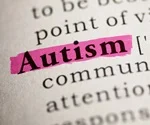For Existing User
Login with your Credentials If you are already member with us
Login with your Credentials If you are already member with us
Register with us, At the time of Registration You should be provide your Organisation Details
Forgot Passwsord? Dont worry we would send you the link to your Registered Email ID for Reset your password.

03 Mar 2024
Admin
Supported by a $2 million R01 grant from the National Institutes of Health, the Auerbach Lab at the Beckman Institute for Advanced Science and Technology will examine how different genes associated with autism spectrum disorders may similarly impact our brain's neurons, resulting in heightened sensitivity to sounds.
Autism spectrum disorders are genetically complex, and hundreds of genes are implicated in their development. As a result, some may conclude that autism is a collection of disconnected disorders with comparable symptoms. However, much like how roads converge as they approach a destination, at some level of brain function there may be bottlenecks: points at which different genes lead to the same effects within the brain and ultimately result in similar symptoms.
Someone who experiences auditory hypersensitivity has difficulty processing sound information. This is especially true in settings like shopping malls, schools, or public transportation, which are often busy, loud, and require individuals to filter out an overabundance of noise and other sensory input. Auditory hypersensitivity has been described as physically painful, impairs individuals' abilities to focus, and can make it difficult to interact with the environment and with other people

NIH funds study on neural mechanisms behind autism and sound sensitivity